Cargando...
Recursos educativos
-
Nivel educativo
-
Competencias
-
Tipología
-
Idioma
-
Tipo de medio
-
Tipo de actividad
-
Destinatarios
-
Tipo de audiencia
-
Creador
Lo más buscado
- Salidas escolares
- Guía de fonética
- Experimentos para expociencia
- Lecturas comprensivas para imprimir
- Literatura contemporánea
- Descargar ejercicios de lengua
- multiplicación para niños
- Artes escénicas, música y danza
- Países de Asia
- Cocina para niños
- La pirámide alimenticia
- Capitales de América
- Guía del mundo
- literatura infantil
- Actividades plásticas
-
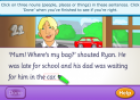
Word types
Topmarks Organización
- 3312 visitas
In this activity we identify parts of speech (nouns, verbs, adjectives, adverbs, pronouns, conjunctions, prepositions, articles) in a text.
-
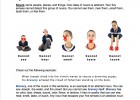
The Abstract Noun
Tiching explorer Organización
- 2799 visitas
This lesson explains the difference between abstract and concrete nouns using practical examples and offering a chart.
-
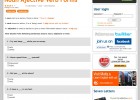
Noun Adjective Verb Forms
Tiching explorer Organización
- 1 lo usan
- 2531 visitas
This page defines nouns, verbs and adjectives. It also provides a multiple-choice exercise to practice distinguishing them.
-
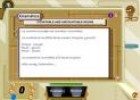
Products from Extremadura
Educarex Organización
- 5314 visitas
Activity designed to help us practice the use of countable and uncountable nouns. We improve oral and written skills.
-
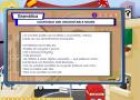
Talking about food
Educarex Organización
- 2 lo usan
- 4838 visitas
Activity designed to help us practice the use of countable and uncountable nouns. We improve oral and written skills.
-
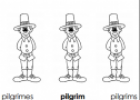
Thanksgiving more than one
Tiching explorer Organización
- 1 lo usan
- 2057 visitas
Printable worksheet (PDF file) designed to help us identify plural nouns. We revise vocabulary associated to Thanksgiving.
-
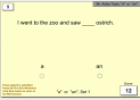
I went to the zoo
Tiching explorer Organización
- 2111 visitas
In this activity we practice the use of "a" or "an" before nouns.
-

Grammar - Go back to the text
EduBook Organización
- 1524 visitas
Countable and Uncountable Nouns Some nouns in English are countable. They have a singular and plural form. For example: an island → islands (noun + -s regular plural) a man → men (irregular plural)…
-

Complete: some, any, a or an
EduBook Organización
- 1270 visitas
Some, any, a or an We use some in front of nouns in affirmative sentences We use any in front of nouns in questions We also use it in negative sentences We use a with singular nouns which begin with a…
-

Much / many (I)
EduBook Organización
- 1736 visitas
There are too many people and too much confusion. we can count the people (countable) we use MANY for countable nouns we can’t count confusion (uncountable) we use MUCH for uncountable nouns Decide if…
Te estamos redirigiendo a la ficha del libro...










